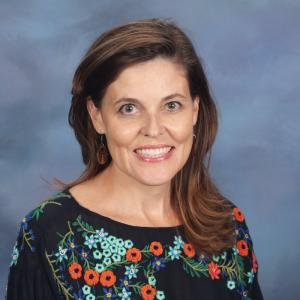
Tami Atkins, OTD, MS, OTR/L
She/Her/Hers
Dr. Atkins earned a bachelor's degree in psychology from North Carolina State University and a master's of science degree from Thomas Jefferson University School of Allied Health.
Dr. Atkin's teaching philosophy focuses on three main tenets. (1) Students have the right to feel safe. (2) Students have the right to experience meaningful engagement. (3) Students deserve the opportunity to have their passions ignited and achieve their goals.
Whether working with diverse people in a university classroom, a children’s hospital bone marrow transplant unit, or a bilingual school, she believes wholeheartedly that one cannot learn without feeling safe. Based on her research and training in positive psychology and the Broaden and Build Theory, when a person feels safe, positive emotions (e.g., interest, inspiration, pride) can grow (Fredrickson, 1998).
"I seek to create a sense of safety to support students’ environment to experience positive and meaningful engagement in the occupation of learning," she explains.
When a student is intellectually, socially, and behaviorally engaged in a meaningful way, enhances their ability to learn (Kearsley & Shneiderman,1998). She sees her job as an inclusive educator who helps students find meaning and connections so they can fully engage in the occupation of learning. Understanding the audience, their many contexts, their birth cohort, and other factors should drive the active learning opportunities to effectively translate course content, Duke OTD’s knowledge domains to better understand health and the world around us.
"Once safety and engagement are achieved, I believe a great teacher must make learning fun and stimulating. Putting time and energy into knowing and understanding the students and the cohort can be done playfully through technology (e.g., Polls, Flipgrid, Padlet, Kahoot, Jeopardy), structured and dynamically guided large and small group discussions, in-class learning labs, out-of-class assignments, assessments, and observation.
"My goal as an instructor at Duke’s OTD program is to develop real-world, creative, occupation-centered content, and provide an inclusive culture of safety, access to, and meaningful engagement with multimodal active learning opportunities. With these tenets in place, modeling and supporting positive emotions of interest, inspiration, and pride within the field of occupational therapy will spark passions, self-efficacy, and possibilities for each student’s path as an OT and intentional human being," she explains.